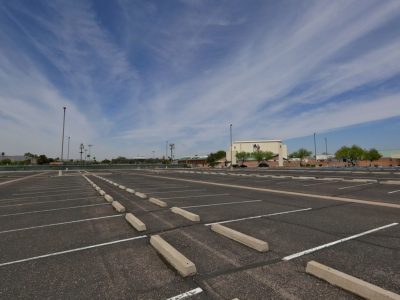U.C. Davis Law School to Host “Clean Water Act at 50” Conference
Interdisciplinary Event Will Assess Landmark Law's Past, Assess Its Future
On Friday, October 7th, the California Environmental Law & Policy Center at U.C. Davis School of Law will convene a major, day-long conference to commemorate the 50th anniversary of the federal Clean Water Act. The event will assess the progress the U.S. has made over the past half-century in abating water pollution; focus on some of the law's most contentious, current features; and predict how the Act will likely--and should--evolve in the decades to come. ...
CONTINUE READINGAddressing Livestock Methane in California
New CLEE/UCLA report identifies policy solutions to reduce emissions | Webinar Nov. 10
Methane is a climate super-pollutant that is 80 times more powerful than carbon dioxide over a 20-year period. Given its potency and short life, experts believe that reducing methane emissions is the highest-yield action that governments and businesses can take to curb near-term warming. In the US, livestock are responsible for over one third of anthropogenic methane emissions; in California, this number is over 50 percent, largely due to the state’s dairy sector, w...
CONTINUE READINGCost-Benefit Analysis and Deep Uncertainty
How should agencies take into account “the things we know we don’t know”?
Since 1981, cost-benefit analysis (CBA) has been at the core of the rule making process. OIRA, the so-called “regulatory czar” in the White House, must approve every significant regulation based on a review of its CBA. But CBA has had a major blind spot. It embodies techniques for analyzing possible harmful outcomes when the probability of those outcomes can be quantified with reasonable confidence. When those probabilities cannot be quantified (“deep uncertain...
CONTINUE READINGWhere Are They Now?
Remember Trump’s appointees — Pruitt, Zinke, and the rest? Here’s where they went afterwards.
Trump’s environmental appointees were a motley crew, many lacking in relevant expertise; others with shaky ethical standards. While in office, they were daily sources of torment for environmentalists. Where are they now? For most, being in the cabinet has been a stepping stone to nowhere. Here’s the Trump crew and their last known whereabouts. David Bernhardt. Bernhardt headed Interior. It probably speaks well of his performance that I can’t remember anythin...
CONTINUE READINGSenate 2022: Arizona
In a tight race, the incumbent faces a pro-drilling, pro-fracking, pro-nuclear advocate.
Arizona was considered a toss-up state in the battle for control of the Senate. There are signs that the race may be shifting a little in the direction of the Democrats, but the extent of any shift remains unclear. The challenger touts his MAGA credentials, while the incumbent is quietly pro-environmental. Mark Kelly (D). Kelly, the incumbent, is a retired astronaut and the husband of Gabby Giffords, a member of Congress whose political career ended when she was s...
CONTINUE READINGAnimal Cruelty and Interstate Commerce
A sleeper Supreme Court case could impact state climate legislation.
A month from now, the Supreme Court will hear a case about an animal cruelty law. It’s not an environmental law case, but the ruling could impact the authority of states to address climate change. Odds are that its impact will be limited, but you can never be sure of what five Justices might decide to do on any given day. Cases involving issues like this one are hard to predict because they tend to scramble the usual ideological alliances. National Pork Producers v....
CONTINUE READINGTwo Months from Election Day
Who will get control of the Senate? And why does that matter for the environment?
We’re now two months from election day. This is a challenging electoral cycle for the Democrats, given inflation, the continuing effects of COVID, the economic impact of the war in Ukraine, and other woes. With turnout possibly boosted by the overruling of Roe v. Wade and other developments, Democrats do have a good chance of holding control of the Senate, depending on how they run individual races and whether there’s any improvement in public opinion on Biden. Wh...
CONTINUE READINGCalifornia’s Most Important Climate Bill You Haven’t Heard Of
Parking reform on Gov. Newsom's desk could deliver major environmental & equity wins
It took a decade, but the California legislature has finally delivered to the governor one of the most critical climate and equity bills in the country. No, it's not mandating carbon neutrality or increasing renewable energy. It's finally ending local mandates that all new housing and infill projects must include car storage, even if they're located within half-mile of transit. AB 2097 (Friedman) builds on work dating back to 2011 (I blogged about then-Assm. Skinner's...
CONTINUE READINGClimate Policy: What’s Happening at the State Level?
Important developments in late summer, some impacting multiple states.
States have played a critical role in U.S. climate policy. The federal government is now supporting that role with federal funding for states. In the meantime, a number of states have moved a step further in plans to phase out gas and diesel vehicles. Two key states have ramped up their plans for carbon neutrality, while offshore wind made a big step forward in the Midwest of all places. The first of these developments is federal support for states. The Infrastructu...
CONTINUE READINGJobs and Environmental Regulation
"Job-killing regulation"? That's not really what the evidence tells us.
Labor Day is a good time to talk about an important topic: the impact of environmental regulation on jobs. This is a clearly a fraught issue. In support of his deregulation campaign, President Trump promised to “cancel every needless job-killing regulation and put a moratorium on new regulations until our economy gets back on its feet.” Biden, on the other hand, has said that “creating jobs and tackling climate change go hand in hand.” As illustrated by Trump’s...
CONTINUE READING











